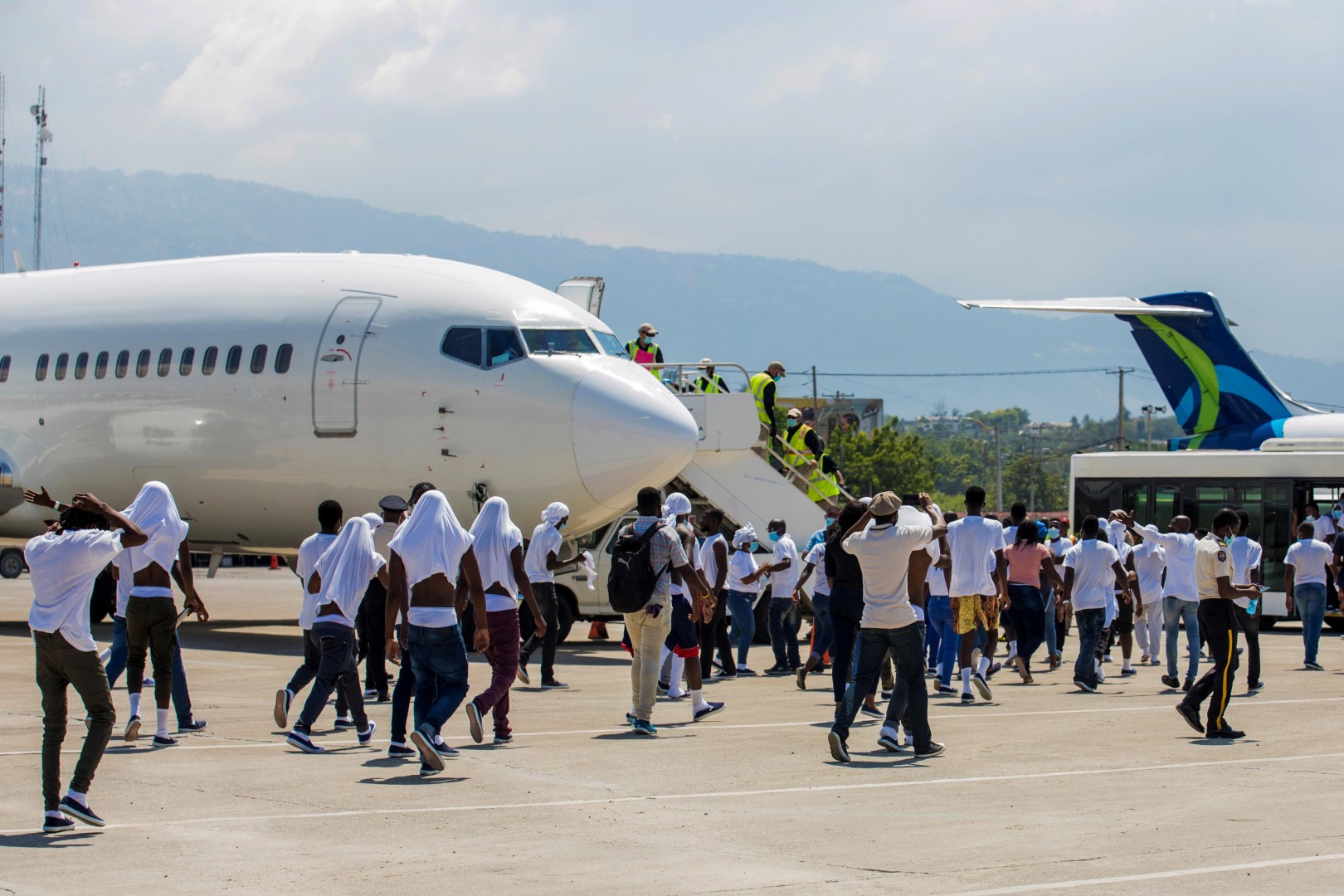
Jen Psaki, White House press secretary: “First, I would note there have been multiple senior level policy conversations on Haiti, where all proposals, including those led by special envoy (Daniel) Foote, were fully considered in a rigorous policy process. There are disagreements in these policy processes that the president welcomes that, the secretary of state welcomes that. That’s certainly a part of having discussions and having robust discussions about the best path forward for difficult circumstances. Some of those proposals were harmful to our commitment to the promotion of democracy in Haiti. I’m not going to detail that further. I will let the State Department do that should they choose to. But I would note that special envoy Foote had ample opportunity to raise concerns about migration during his tenure. He never once did so. Now, that wasn’t his purview. His purview was, of course, being the special envoy on the ground. His positions were and his views were put forward, they were valued, they were heard. Different policy decisions were made in some circumstances.”
Reporter: “But it’s not just him. We’ve heard from Democrats on Capitol Hill who say they’re really against these mass deportations. The White House still stands behind the vast deportations, they, do you still view them as humane?”
Jen Psaki, White House press secretary: “First of all, they’re not deportations. People are not coming into the country through legal methods. And again, our policy process has continued to be the same with Haiti as it is for anybody coming through in a further irregular migration across our border. I’d note, as I did yesterday, that as we’ve applied our border restrictions, as we’ve applied our immigration policies, there were more than 90,000 people who departed the country, who who attempted to cross our border in the month of August. That was even before we saw the horrible photos that we saw of people gathering under the bridge. There is a process that is in place as people, whether they’re coming from Haiti or any part of the world, goes through.”
Reporter: “What does he believe the comparisons being made between this administration and the Trump administration?”
Jen Psaki, White House press secretary: “We could not see it as any more different from the policy of the prior administration, which the president feels, we all feel, was inhumane, immoral, ineffective, not operationally, wasn’t operationally working. And because of the dysfunction of it, we have led to a very broken system that we’re dealing with today. So what he has asked all of us to convey clearly to people who are understandably have questions, are passionate, are concerned, as we are about the images that we have seen is one, we feel those images are horrible and horrific. There is an investigation the president certainly supports overseen by the Department of Homeland Security, which he has conveyed will will happen quickly. I can also convey to you that the secretary also conveyed to civil rights leaders earlier this morning that we would no longer be using horses in Del Rio. So that is something, a policy change that has been made in response. But separately, all related, it’s also important for people to understand what our process and our immigration process is and what the steps are that are taken. We are still under Title 42 because we are in a global pandemic. So we are still operationalizing that. If people are not are not expelled under that, then they are, there are a range of options. Either they are put into a alternative to detention where they, where biometric data is required. They are required to they’re given a notice to appear or they are given or they are put in an ice facility. This is the process that is ongoing and has happened for every other migrant who has attempted to come irregularly across the border.”






